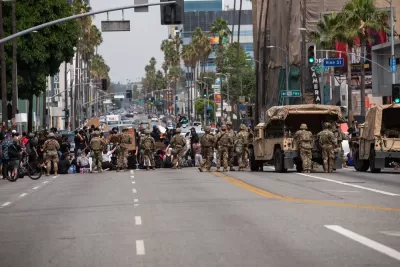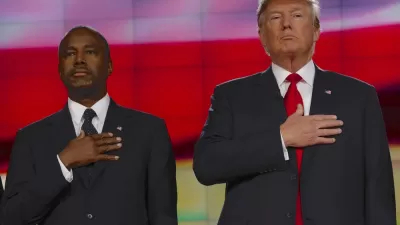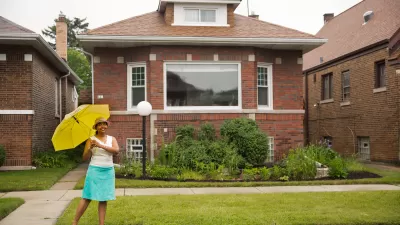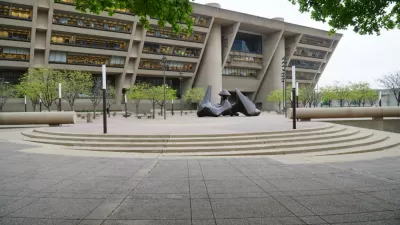Racial disparities in police killings increase with segregation. Does this mean segregation causes racialized police violence?

Everyone should be safe and secure in their homes, their neighborhoods, and going about their lives, no matter who they are, what they look like, or where they have chosen to live. This is a pretty basic statement, and yet it’s one that is clear this country has not lived up to—especially for Black Americans.
People in the housing field who have long fought for fair lending, fair housing, and integration are well aware that the promise of the civil rights movement, in terms of free choice to live wherever one chooses in peace, has not been realized. Many have pointed out, as Gail Schechter of HOME recently did, that open housing was the primary focus of the civil rights movement in the North, and it faced virulent opposition. Despite legal changes prohibiting explicit racial discrimination in housing, it continues through unspoken biases and through rules and systems that compound and perpetuate the disadvantages Black families were left with as a result of legally allowed discrimination.
There is an understandable desire to connect this knowledge to the fight against police violence. And I think they are connected. But we need to be careful about how we understand that connection if we really want to dismantle it.
Police Do Our Dirty Work
In a New York Times op-ed in early July, Betsy Hodges, the mayor of Minneapolis from 2014 to 2018, called out white liberals for blocking systemic changes that would have advanced racial equity. Hodges said it was extremely hard to generate support from white liberals for changes in school funding that would advance equity or in zoning that would advance fair housing, even while they profess support for racial equity and support smaller measures that don’t make them feel uncomfortable. Racial segregation within the city has actually been increasing since 2000. It’s a powerful and important point, and the op-ed is worth a read.
But along the way Hodges describes the police as aware that they were being asked to handle the results of our unequal system. “White liberals like me ask the police to do our dirty work,” she wrote, “dealing with the racial and economic inequities our policies create.”
She’s not wrong. That is part of what’s happening.
....
FULL STORY: Policing, Segregation, and Causation vs. Correlation

Alabama: Trump Terminates Settlements for Black Communities Harmed By Raw Sewage
Trump deemed the landmark civil rights agreement “illegal DEI and environmental justice policy.”

Planetizen Federal Action Tracker
A weekly monitor of how Trump’s orders and actions are impacting planners and planning in America.

The 120 Year Old Tiny Home Villages That Sheltered San Francisco’s Earthquake Refugees
More than a century ago, San Francisco mobilized to house thousands of residents displaced by the 1906 earthquake. Could their strategy offer a model for the present?

Ken Jennings Launches Transit Web Series
The Jeopardy champ wants you to ride public transit.

BLM To Rescind Public Lands Rule
The change will downgrade conservation, once again putting federal land at risk for mining and other extractive uses.

Indy Neighborhood Group Builds Temporary Multi-Use Path
Community members, aided in part by funding from the city, repurposed a vehicle lane to create a protected bike and pedestrian path for the summer season.
Urban Design for Planners 1: Software Tools
This six-course series explores essential urban design concepts using open source software and equips planners with the tools they need to participate fully in the urban design process.
Planning for Universal Design
Learn the tools for implementing Universal Design in planning regulations.
Clanton & Associates, Inc.
Jessamine County Fiscal Court
Institute for Housing and Urban Development Studies (IHS)
City of Grandview
Harvard GSD Executive Education
Toledo-Lucas County Plan Commissions
Salt Lake City
NYU Wagner Graduate School of Public Service





























